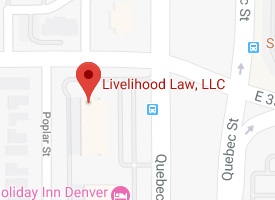
Employers know they can face severe penalties for violating employment discrimination laws. So when an employee complains about a discriminatory practice (or other illegal activity), some employers try to make the problem disappear—by punishing the employee who has asked for help. In employment law terms, punishing an employee for asking for help or reporting discrimination is called retaliation. And the same federal and state laws that prohibit employment discrimination also prohibit retaliation against an employee for coming forward to report the illegal activity. To that end, if you feel you are facing backlash for reporting unlawful conduct at your workplace, here’s what you need to know about retaliation in Colorado.
Who Does Anti-Retaliation Laws Protect?
Both federal and state anti-retaliation laws protect workers. Regardless of your worker classification (applicant, full-time or part-time), an employer may not fire, demote, harass or otherwise discipline you for complaining about discrimination in the workplace or engaging in any protected activity. Protected activities include:
- Filing a discrimination complaint with the Equal Opportunity Commission (EEOC) or the Colorado Civil Rights Division (CCRD)
- Reporting or investigating acts of discrimination or harassment,
- Supporting a co-worker’s complaint about discrimination or unlawful workplace conduct, and
- Whistle-blowing or raising concerns about illegal workplace conduct.
How To File An Employment Retaliation Claim
To pursue an action for retaliation, an employee must file a claim with either the EEOC or the CCRD. The agencies’ work-share agreement allows for automatic cross-filing of a single claim to both agencies, eliminating the need for dual filing.
Under Colorado state law, a worker must submit a claim of retaliation before the CCRD within 6 months of the retaliatory incident. And there is a statute of limitation that requires EEOC complaints be filed within 300 days of the retaliatory event.
Are You A Victim?
Retaliation is actually the most frequently alleged basis of discrimination; however, it is sometimes difficult for an employee to know if they are a victim.
Most employers today know that firing a worker for engaging in protected activity will likely lead to a viable retaliation claim. Therefore, employers may choose to take a more subtle action against an employee. If you are unsure if your employer is retaliating against you, here are some common scenarios:
- Has your job become increasingly difficult due to threats, hostile remarks, increased supervision, or company-wide rumors about you?
- Has your income been affected due to reduced wages, demotion, or denial of promotion or benefits?
- Have you been transferred or has your work environment changed since your engagement in a protected activity?
If you have answered yes to any of the questions above, you may have a retaliation claim.
Hire An Employment Discrimination Attorney
If you are a victim of unlawful retaliation or need help in deciding whether you are the target of retaliation, Livelihood Law is here to help. Our experienced employment attorneys are happy to talk with you about your concerns. Contact us here today.


